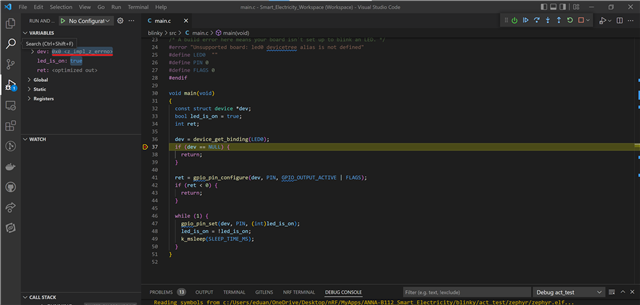I created a simple custom board (in VS Code 'Create a new board' Wizard) based on nrf9160 secure.
I copied the LED part of the original dts and I want to run blinky.
At first it worked, then somehow somewhere it stopped working. I traced the issue down to the function device_get_binding() that keeps returning NULL for my custom board even though all applicable settings and pins are identical.
I have tried the same with nrf52840 and nrf52832 and I get the same result.
The frustrating part is that it did work and stopped working all of a sudden - Is there some global setting that I could have accidently changed?

